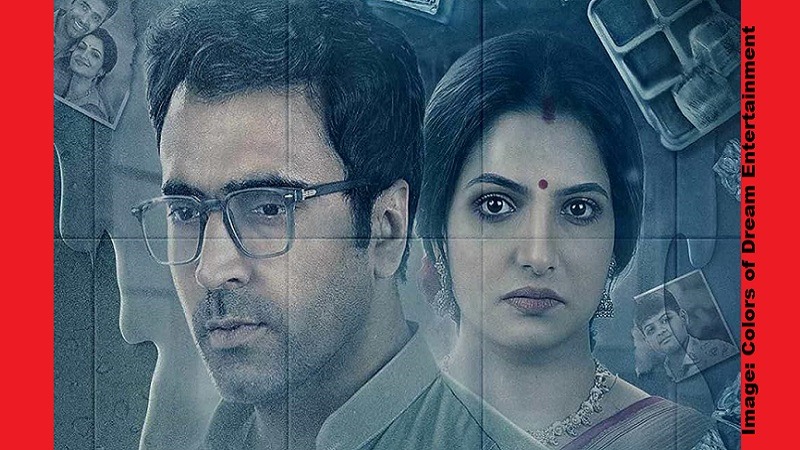- Published on November 22, 2025
Directed by Arjunn Dutta, this movie is about a divorced couple played by Abir Chatterjee and Tanusree Chakraborty.

- Cast: Abir Chatterjee, Tanusree Chakraborty, Lakshya Bhattacharya, Debjani Chatterjee, Arya Dasgupta, Anuradha Mukherjee
- Director: Arjunn Dutta
- Release date: November 21
- Music: Soumya Rit
- Screenplay: Ashirbad Maitra
- Runtime: 1 hour 44 minutes
- Genre: Drama
Plot:
The movie centres on Mili (played by Tanusree Chakraborty) and Swarnava (Abir Chatterjee), an ex-married couple, who come together on a rainy night while taking care of their child.
Their reunion is emotionally fraught: the tension, unresolved feelings, and past regrets surface, symbolized elegantly through the metaphor of a dying deep freezer (“deep fridge”).
The narrative is structured almost like a three-act tragedy (“Ice Cube,” “Melting Point,” and “Defrost”), which helps peel back different emotional layers.
Strengths:
Tanusree Chakraborty (Mili) delivers a restrained but powerful performance. Her internal conflict, longing, and regret come through without need for over-the-top dramatics.
As Swarnava, Abir Chatterjee is praiseworthy – some of his most haunting moments are in his quietness. His expressions, silences, and small physical tics speak volumes.
Lakshya Bhattacharya, playing their child, adds a grounded innocence, and Anuradha Mukherjee brings warmth.
Arjunn Dutta’s storytelling is very sensitive and introspective.
Supratim Bhol’s cinematography is highlighted as a major plus. The film leans into “cool blues and greens” — the colors of a freezer — to give a surreal, almost icy visual tone that matches the emotional distance between the characters.
The soundtrack is subtle but very effective. There’s a song called Jhile Jhile Re (by Mekhla Dasgupta) that lingers emotionally.
Music doesn’t overpower, but supports the film’s lyrical and introspective tone.
Weaknesses:
The main weakness of the movie is pacing. As the film is very introspective and slow-burning, it may feel a bit static for viewers looking for conventional drama.
Another issue is the dialogues – the dialogues are not so impactful, and the narrative largely relies on silence rather than talk. The film doesn’t rely on melodrama but instead uses silence and small gestures to communicate deep emotional pain.
Given its arthouse, emotionally subtle style, Deep Fridge may not appeal to mainstream audiences who prefer more commercial or fast-paced narratives.
Conclusion:
The choice of a deep fridge as a metaphor for repression and internal coldness is poetic and effective. The director Arjunn Dutta presents how this physical object mirrors the emotional “cooling down” in the characters’ relationship.
The film doesn’t spoon-feed “answers.” It deliberately remains ambiguous at times, allowing viewers to interpret the nature of regret, reconciliation, and closure.
Themes of divorce, emotional repression, and familial fragility are very contemporary and relatable.
The film is a reminder that regional cinema (especially Bengali) is producing deeply thoughtful, character-driven stories — not just mass entertainers.
For audiences who enjoy contemplative cinema, Deep Fridge offers a very resonant experience: it’s not just a story of a broken marriage, but a meditation on memory, regret, and the possibility of healing.
Rating:
Rated 3 out of 5
